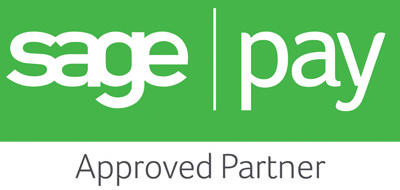Picking a Side of The Fence
Making a stand on any issue is a polarising action nowadays – with the speed of news spread via the internet a simple tweet can go viral in a matter of hours and virality is not always a positive thing. Whether you express an opinion on the sponsorship of your local non-league football club, or support for a high profile individual facing controversy, there will always be someone with an opposing opinion and a loud voice to match.
In days past the simplest course of action was just to stay silent on these issues and avoid expressing any controversial (or seemingly innocent) opinion. It is not so simple anymore, and the need for businesses to pick a side on topical issues won't change in the near future. Around half of Millennials and Gen Z employees surveyed by Deloitte said they choose their workplace based on that organisation's stance on ethical issues and their overall ethos. These same employees also use these guidelines when deciding which brands to support as consumers, and which to avoid. In some cases, brands can be “cancelled”, or boycotted, by these generations for their views on topical issues and their ethical values.
There is further haziness to the situation – unfortunately it is not as easy as tweeting a statement or expressing support for the popular option. Whether you make a stand or not depends on whether the issue is relevant to your business, and whether a statement could be seen to be “taking advantage” of support for a cause. On International Women's Day this year many companies tweeted their support for the day, but these statements were then retweeted by an account which added the gender pay gap for each organisation. What started out as a simple expression of support was quickly turned into an opportunity to spotlight hypocrisy, drawing attention to the gap between the real-world treatment of female employees, and the stance the company wanted to be seen to hold.
Caution should be taken to be aware of whether a statement will be interpreted as disingenuous bandwagon jumping, or as genuine support. In some cases, it isn't appropriate for a business to make a statement – companies who produce aircraft components shouldn't make statements about aviation disasters. There are times when saying nothing is better than saying something and paying a high price for virtue signalling or appearing to scapegoat or dodge blame.
There are obviously some issues where there's an unequivocal right side of the fence, and where it is quite common for public figures and businesses to make a statement of support. The Russia/Ukraine conflict is one example of an issue where there is a clear right side, and the Grenfell Tower disaster is another event that businesses can be assured of avoiding controversy over. For large scale events like this is can be easy to judge the mood of the public, but appearing to capitalise on these events is still best avoided. Special offers, discounts and other obvious marketing ploys should be avoided, but a pledge to donate the profits from a certain product can be carefully worded to show your support.
A good general rule when choosing a side of the fence, and trying to avoid the metaphorical splinters when you get it wrong, is to see what other companies are saying, and look at the public response to these statements. Twitter is an excellent way of seeing public opinion in real time, and just looking at 10-15 minute’s worth of responses will give you a good idea of what you should and should not say or whether to say anything at all.
